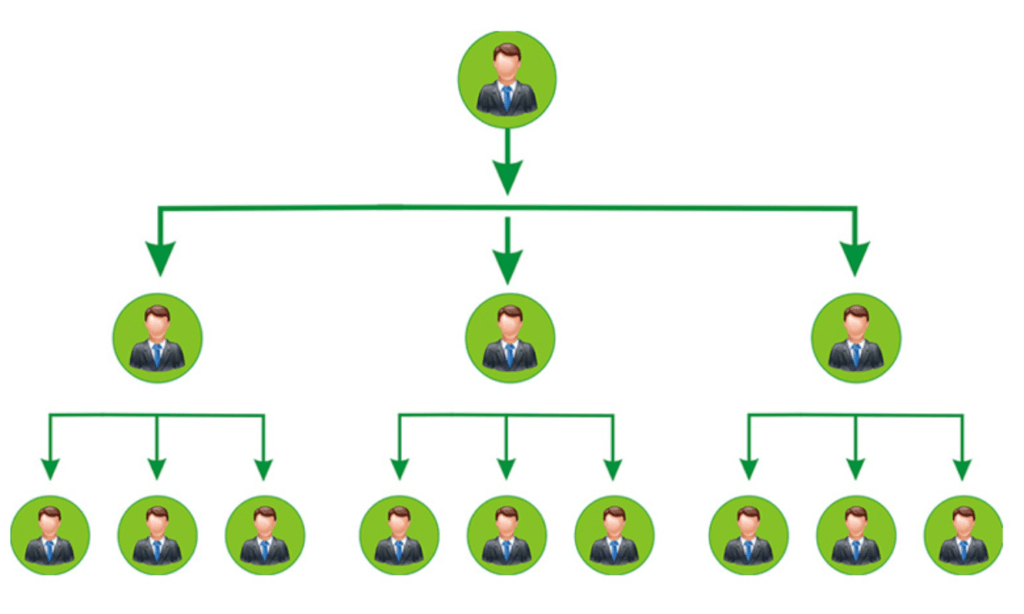Multi-Level Marketing affiliate programs have gained significant popularity in the business world due to their unique structure and potential for financial success. These programs offer individuals the opportunity to become affiliates or independent distributors of products or services, earning commissions not only from their own sales but also from the sales made by others they recruit into the program.
At its core, a Multi-Level Marketing affiliate program operates on the principle of building a network of distributors who promote and sell products or services to consumers. Each affiliate earns a commission based on their own sales efforts as well as those of the distributors they’ve recruited and the subsequent levels of recruits in their downline.
One of the key features of Multi-Level Marketing affiliate programs is the emphasis on recruitment and building a team. Affiliates are encouraged to recruit others to join the program, often offering incentives and bonuses for successful recruitment. This hierarchical structure, often depicted as a pyramid, has led to some controversy and criticism surrounding MLM programs, with concerns about their resemblance to illegal pyramid schemes.
Understanding Multi-Level Marketing affiliate

Understanding Multi-Level Marketing affiliate involves comprehending the intricate dynamics of this unique marketing model. In essence, an Multi-Level Marketing affiliate is an individual who participates in a multi-level marketing program by promoting and selling products or services offered by a parent company, while also recruiting new members to join the network. Here’s a breakdown of the key elements involved in understanding MLM affiliates:
Sales and Promotion:
Multi-Level Marketing affiliate are primarily responsible for selling the company’s products or services directly to consumers. They often utilize various marketing techniques such as personal selling, online marketing, and demonstrations to generate sales.
Recruitment:
In addition to selling products, Multi-Level Marketing affiliate also focus on recruiting new members to join the MLM network. These recruits become part of the affiliate’s “downline” and contribute to their earning potential through sales and recruitment efforts of their own.
Hierarchical Structure:
MLM operates on a hierarchical structure where affiliates are organized into levels or tiers. Affiliates who recruit new members are considered their “upline,” while those recruited are their “downline.” This structure allows for earning commissions not only from personal sales but also from the sales generated by downline members.
Compensation Plan:
MLM companies typically offer a compensation plan that rewards affiliates for both their personal sales and the sales made by their downline. This often includes various commission structures, bonuses, and incentives based on sales volume, recruitment achievements, and overall team performance.
Training and Support:
MLM companies provide training and support to their affiliates to help them succeed in their business endeavors. This may include product training, sales techniques, marketing strategies, and personal development resources to enhance their skills and capabilities.
Ethical Considerations:
While MLM can be a legitimate business model, there are ethical considerations to be aware of, including the importance of transparency, honesty, and compliance with regulations. It’s essential for Multi-Level Marketing affiliate to conduct their business ethically and avoid engaging in deceptive practices or misleading claims.
Overall, understanding Multi-Level Marketing affiliate involves recognizing their role in driving sales, recruiting new members, navigating the hierarchical structure, leveraging compensation plans, receiving training and support, and upholding ethical standards. By grasping these fundamental aspects, individuals can effectively participate in and succeed within the realm of multi-level marketing.
Infinity Multi Level Marketing
Role of Multi-Level Marketing affiliate

The role of a Multi-Level Marketing affiliate is pivotal within the MLM business model. Here’s an in-depth look at their responsibilities and contributions:
Sales Generation:
Multi-Level Marketing affiliate are primarily tasked with selling the products or services offered by the MLM company. They utilize various marketing strategies to promote and sell these products directly to consumers. This involves understanding the features and benefits of the products, identifying potential customers, and effectively communicating the value proposition to drive sales.
Recruitment and Team Building:
A significant aspect of the Multi-Level Marketing affiliate role is recruiting new members to join the MLM network. They build and expand their “downline” by bringing in new affiliates who become part of their team. This involves networking, prospecting, and presenting the MLM opportunity to potential recruits. Successful recruitment not only expands the affiliate’s team but also increases their earning potential through commissions earned from the sales made by their downline.
Training and Support:
Multi-Level Marketing affiliate provide training and support to their downline members to help them succeed in their MLM business. This includes sharing product knowledge, sales techniques, and marketing strategies, as well as offering motivation and encouragement. By providing guidance and assistance, affiliates empower their team members to effectively promote products, recruit new members, and achieve their business goals.
Leadership and Mentorship:
As affiliates build their teams and expand their downline, they take on leadership roles within the MLM network. They serve as mentors and role models to their team members, guiding them on their journey to success. Effective leadership involves leading by example, fostering a positive team culture, and providing guidance and support to help team members overcome challenges and achieve their full potential.
Goal Achievement and Performance:
Multi-Level Marketing affiliate are driven by their goals and performance objectives. They set targets for sales volume, recruitment, and team growth, and work diligently to achieve these goals. Success in MLM often requires dedication, persistence, and a strong work ethic. Affiliates continually strive to improve their performance, expand their networks, and increase their earning potential within the MLM business opportunity.
In summary, the role of an Multi-Level Marketing affiliate encompasses sales generation, recruitment and team building, training and support, leadership and mentorship, and goal achievement. By fulfilling these responsibilities effectively, MLM affiliates can create a thriving business, build a successful team, and achieve financial success within the MLM industry.
Weight Loss Multi Level Marketing
Strategies for Success as a Multi-Level Marketing affiliate

To succeed as a Multi-Level Marketing affiliate, it’s essential to employ effective strategies that maximize sales, recruitment, and team growth. Here are key strategies for success:
- Build a Personal Brand: Establish yourself as a trusted authority within your niche market. Develop a strong personal brand that reflects your values, expertise, and unique selling proposition. Consistently communicate your brand message across all marketing channels to build credibility and attract potential customers and recruits.
- Leverage Online and Offline Marketing Channels: Utilize a combination of online and offline marketing channels to reach a broader audience. Leverage social media platforms, such as Facebook, Instagram, and LinkedIn, to connect with prospects, share valuable content, and promote products. Additionally, explore offline channels such as networking events, local community gatherings, and direct mail campaigns to expand your reach and attract new customers and recruits.
- Provide Value through Content: Create high-quality content that educates, entertains, and inspires your audience. Offer valuable insights, tips, and solutions related to your products or industry through blog posts, videos, podcasts, and social media posts. By providing valuable content, you can establish yourself as a thought leader and attract potential customers and recruits who resonate with your message.
- Develop Effective Sales Techniques: Hone your sales skills to effectively communicate the benefits of your products and convert prospects into customers. Practice active listening, ask probing questions to uncover customer needs, and tailor your sales pitch accordingly. Focus on building genuine relationships with your customers and providing exceptional customer service to earn their trust and loyalty.
- Focus on Relationship Building: Prioritize building strong relationships with your customers and team members. Invest time in getting to know their needs, preferences, and aspirations. Offer personalized support, guidance, and encouragement to help them achieve their goals and overcome challenges. By fostering a supportive and inclusive team culture, you can create a loyal and motivated network of affiliates who are committed to your success.
- Provide Training and Support: Offer comprehensive training and support to your team members to help them succeed in their MLM business. Provide them with access to training materials, resources, and mentorship programs to develop their skills and confidence. Encourage open communication and collaboration within your team, and create a positive and empowering environment where everyone feels valued and supported.
- Set Clear Goals and Track Progress: Define clear, achievable goals for your business and track your progress regularly. Break down your goals into smaller, actionable steps, and create a plan to achieve them. Monitor your performance, analyze key metrics, and adjust your strategies accordingly to stay on track towards your goals. Celebrate your successes and learn from your failures to continuously improve and grow your business.
By implementing these strategies consistently and persistently, you can position yourself for success as an MLM affiliate and build a thriving business that generates sustainable income and long-term growth.
Challenges and Pitfalls in Multi-Level Marketing affiliate
While Multi-Level Marketing (MLM) offers opportunities for financial success and personal growth, it also presents several challenges and pitfalls that MLM affiliates must navigate. Here are some common challenges:
- Market Saturation and Competition: As MLM networks expand, markets can become saturated with competing products and distributors. Increased competition makes it more challenging to attract customers and recruits, and may require affiliates to differentiate themselves through unique value propositions and targeted marketing strategies.
- Negative Perceptions and Stigma: MLM has faced criticism and skepticism due to past instances of unethical practices and pyramid schemes. Negative perceptions can hinder recruitment efforts and make it more difficult to build trust with potential customers. Affiliates must address these concerns transparently and ethically, and focus on building credibility through honesty and integrity.
- Balancing Sales and Recruitment Efforts: Multi-Level Marketing affiliate are often encouraged to prioritize recruitment to build their downline and increase earning potential. However, focusing solely on recruitment without adequate attention to sales can lead to inflated team sizes with low productivity. Finding the right balance between sales and recruitment efforts is essential for long-term success in MLM.
- Ethical Considerations and Legal Compliance: MLM operates in a regulatory environment that varies from country to country, with laws governing aspects such as product claims, compensation structures, and business practices. Affiliates must ensure compliance with relevant regulations and adhere to ethical standards to avoid legal issues and protect their reputation.
- High Turnover Rates: The MLM industry is characterized by high turnover rates, with many affiliates joining and leaving the business within a short period. This turnover can disrupt team dynamics and impede long-term growth. Affiliates must focus on retaining team members by providing ongoing support, training, and opportunities for advancement.
- Financial Risks and Investment: While MLM typically offers low-cost entry opportunities, affiliates may still incur expenses for product purchases, marketing materials, training programs, and event attendance. There is also a risk of financial loss if sales and recruitment efforts do not yield expected returns. Affiliates should carefully evaluate the costs and benefits of participating in MLM and develop a realistic budget and financial plan.
- Dependency on Company Stability: Multi-Level Marketing affiliate rely on the stability and reputation of the parent company for their success. Factors such as changes in management, product quality issues, or legal controversies can negatively impact the business and its affiliates. Affiliates should research and evaluate MLM companies carefully before joining, and be prepared to adapt to changes in the business environment.
Navigating these challenges requires resilience, adaptability, and a commitment to ethical conduct. By addressing these pitfalls proactively and implementing effective strategies, MLM affiliates can overcome obstacles and build a sustainable and successful business within the MLM industry.
Conclusion
In conclusion, the role of a Multi-Level Marketing affiliate is multifaceted, involving sales generation, team building, leadership, and goal achievement.
Throughout this discussion, we’ve explored the fundamental aspects of MLM affiliate marketing, including its structure, responsibilities, strategies for success, challenges, and pitfalls.
MLM affiliates play a crucial role in driving sales and expanding the reach of MLM companies through their efforts in selling products, recruiting new members, and providing training and support to their teams.
They leverage a combination of online and offline marketing channels, develop effective sales techniques, and focus on building strong relationships with customers and team members to achieve success.
Exploring Jeunesse Multi-Level Marketing
Other Questions
What is the role of a Multi-Level Marketing affiliate?
The role of an MLM affiliate involves selling products or services, recruiting new members, providing training and support, and building a team within the MLM network.
How do MLM affiliates earn income?
MLM affiliates earn income through commissions from personal sales, bonuses for recruiting new members, and overrides from the sales made by their downline team.
What are some key strategies for success as an MLM affiliate?
Key strategies include building a personal brand, leveraging online and offline marketing channels, providing value through content, developing effective sales techniques, focusing on relationship building, providing training and support, setting clear goals, and tracking progress.




